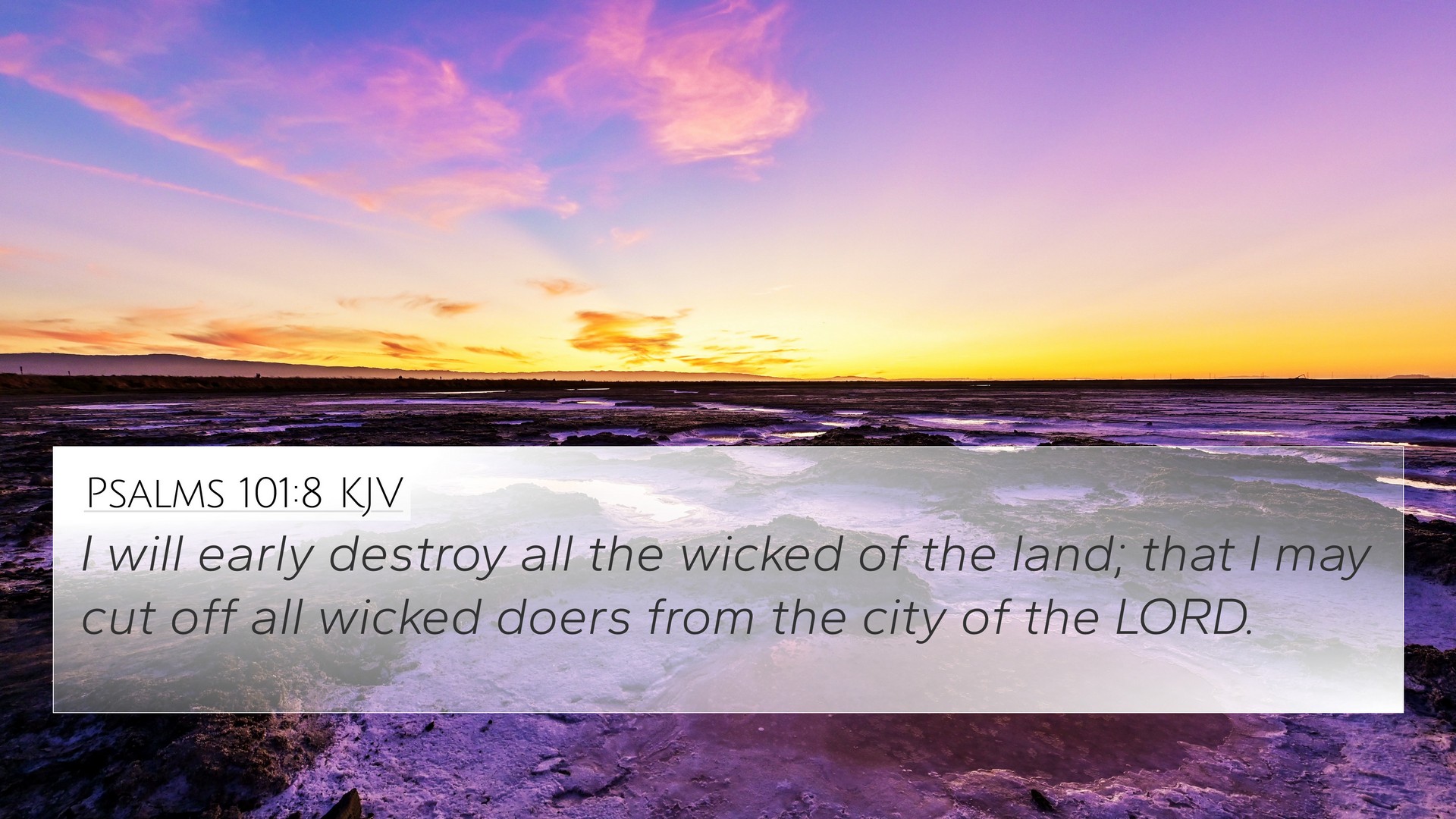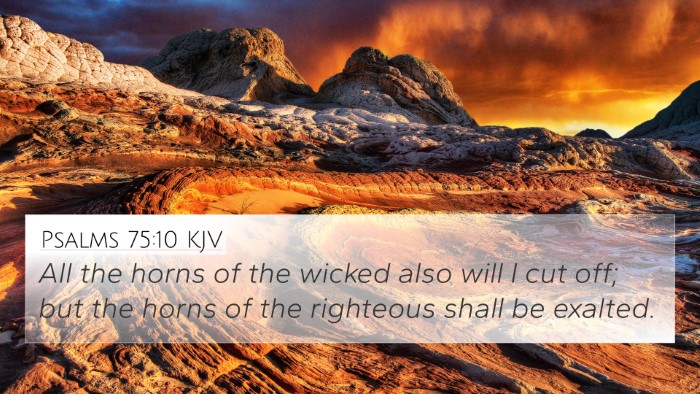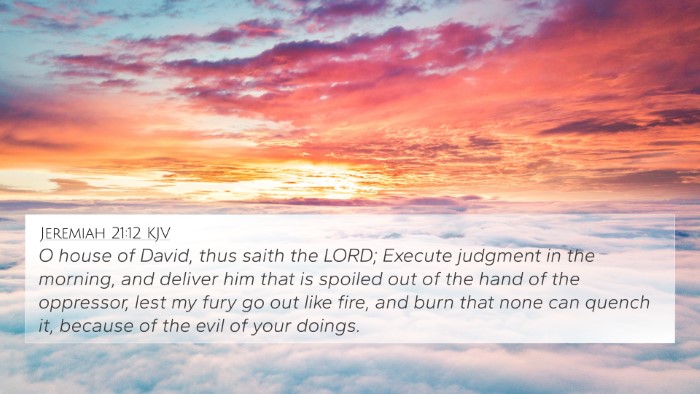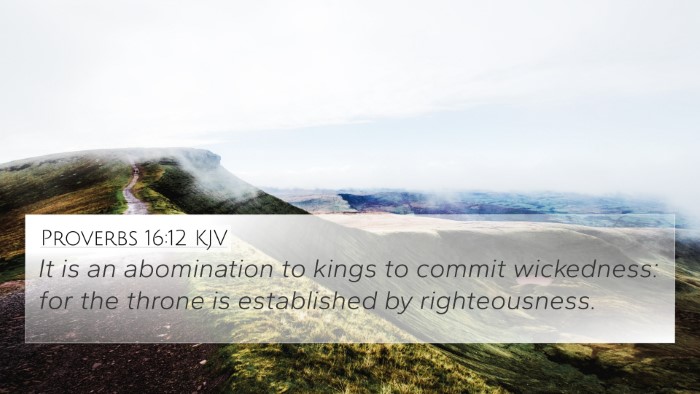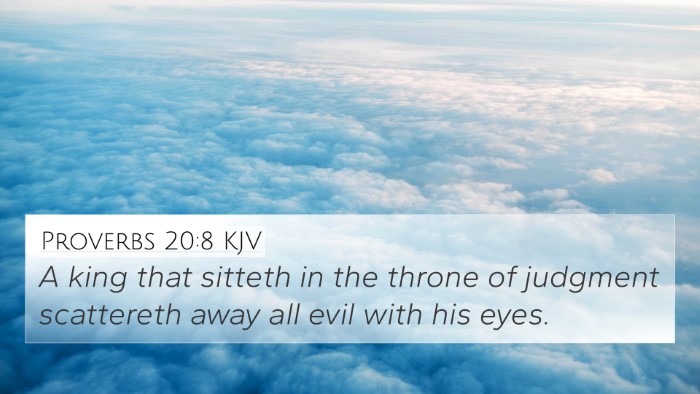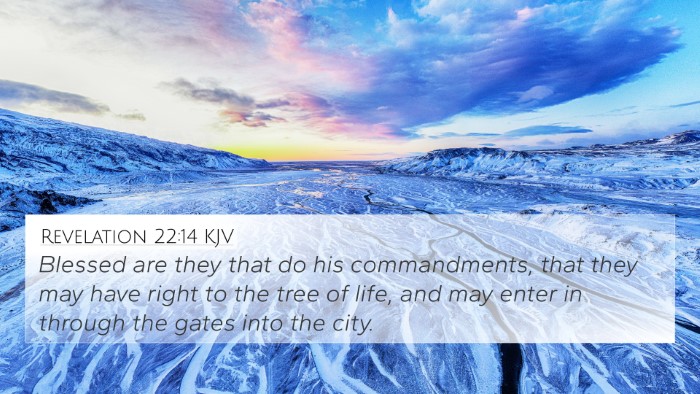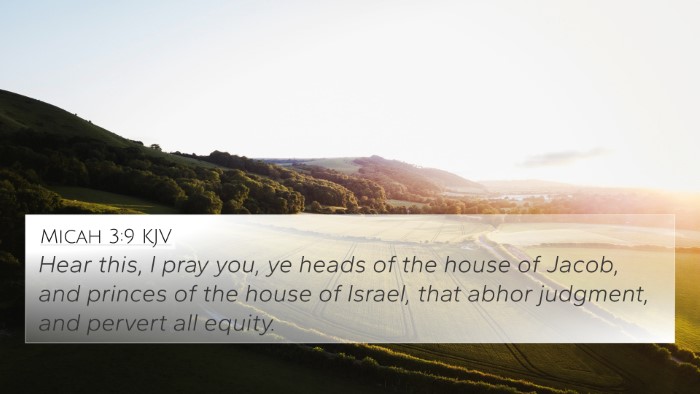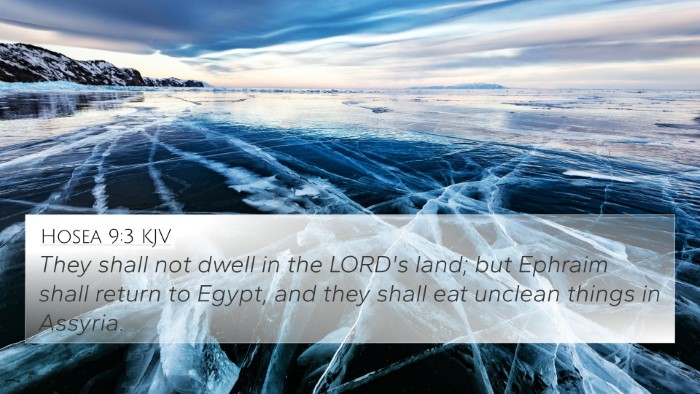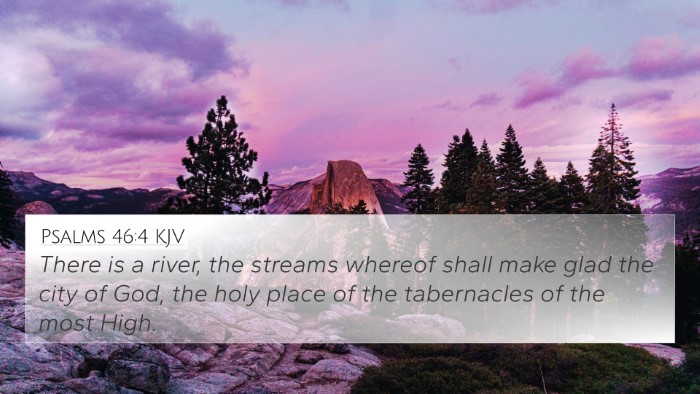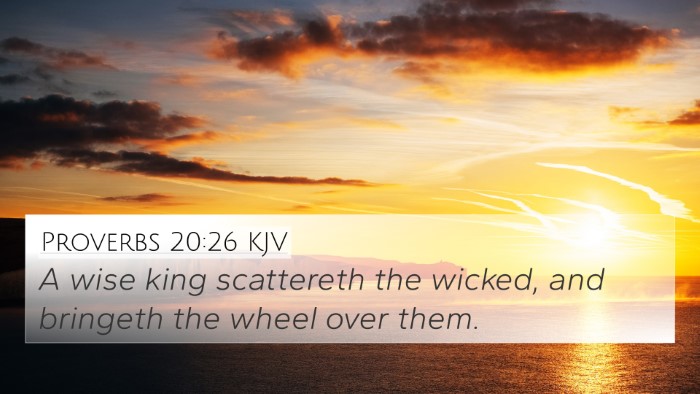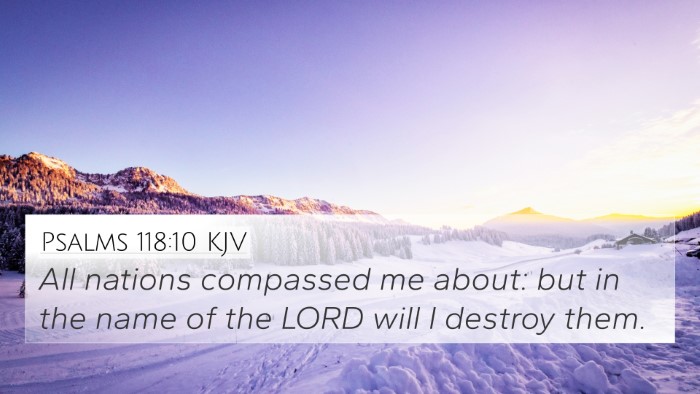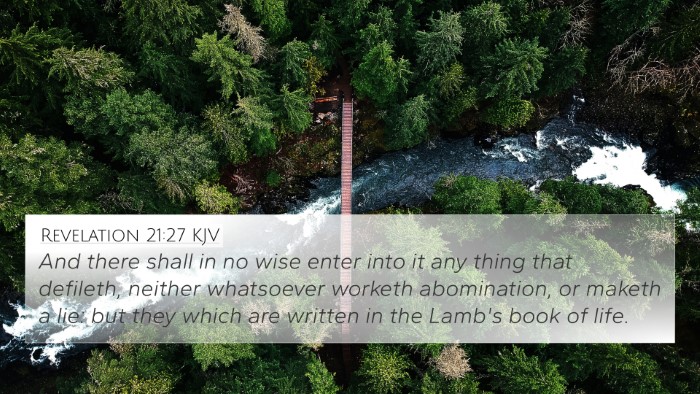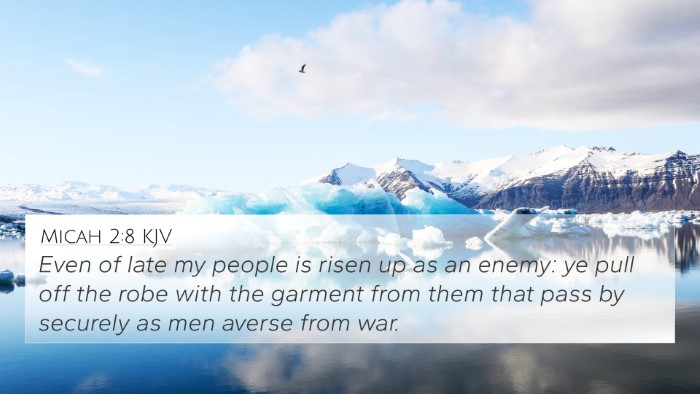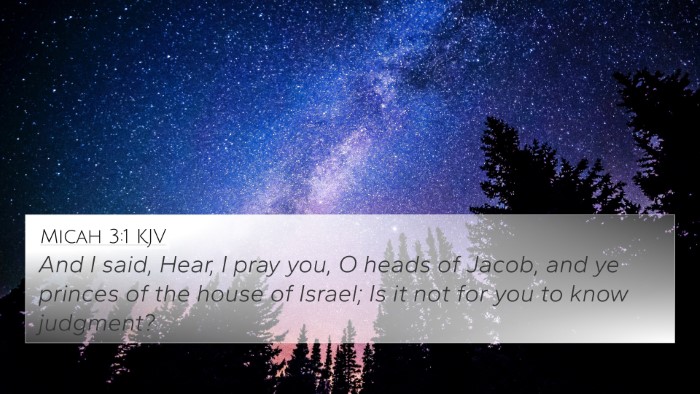Psalms 101:8 Meaning and Commentary
Psalms 101:8 states: "I will early destroy all the wicked of the land; that I may cut off all wicked doers from the city of the Lord." This verse encapsulates a commitment to righteousness and reflects the psalmist’s desire for a just society. The following section delves into its interpretation, providing insights drawn from the commentaries of noted theologians like Matthew Henry, Albert Barnes, and Adam Clarke.
Summary of the Verse
This verse signifies a pledge to eradicate wickedness and maintain purity within the community. The psalmist strongly affirms the need for moral integrity and the removal of evil influences to preserve a society that honors God. This showcase of zeal against wickedness aligns with God’s holiness and justice.
Insights from Public Domain Commentaries
-
Matthew Henry:
Henry emphasizes the psalmist's proactive approach towards sin and corruption, stating that righteous leaders must act decisively against evildoers. The phrase "early destroy" indicates urgency in the pursuit of justice, as well as a reflection of God’s character in his intolerance for sin.
-
Albert Barnes:
Barnes notes that this declaration reflects the psalmist's intention to cultivate holiness within God’s dwelling place. The act of cutting off "all wicked doers" suggests a commitment not only to personal purity but also to ensuring the community follows suit in righteousness.
-
Adam Clarke:
Clarke interprets this verse in the context of a leader's responsibilities, highlighting that the psalm writer expresses determination to maintain divine standards within the city. The "city of the Lord" underscores the concept of a community consecrated to God, where wickedness has no place.
Cross-Referencing Biblical Texts
To fully grasp the implications of Psalms 101:8, one can look at various cross-references that explore themes of righteousness, judgment, and divine justice. Here are seven notable references that echo similar sentiments:
- Psalms 119:104: "Through Your precepts, I get understanding; therefore, I hate every false way." This emphasizes the rejection of wickedness in favor of God's truth.
- Psalms 5:6: "You shall destroy those who speak falsehood; the Lord abhors the bloodthirsty and deceitful man." Here, the seriousness of God’s judgment on the wicked is evident.
- Proverbs 29:12: "If a ruler heeds lies, all his servants become wicked." This illustrates the significant impact of leaders in shaping moral standards.
- Isaiah 1:16-17: "Wash yourselves, make yourselves clean; put away the evil of your doings from before My eyes. Cease to do evil, learn to do good..." This speaks to the conscious effort required to purge evil.
- Romans 12:9: "Let love be without hypocrisy. Abhor what is evil. Cling to what is good." The New Testament reiterates the call to reject wickedness and embrace good.
- Revelation 21:8: "But the cowardly, unbelieving, abominable, murderers, sexually immoral, sorcerers, idolaters, and all liars shall have their part in the lake which burns with fire and brimstone..." This portrays the ultimate fate of the wicked.
- Matthew 5:30: "And if your right hand causes you to sin, cut it off and cast it from you..." This metaphorical instruction aligns with the psalmist’s commitment to purging sin.
Thematic Connections Between Bible Verses
Throughout the Scriptures, a recurring theme revolves around the concepts of holiness, judgment, and the importance of community integrity. By engaging in cross-referencing Bible study, one can discover how various verses resonate with the ideals expressed in Psalms 101:8. Using a Bible concordance or Bible cross-reference guide facilitates deeper exploration into these interwoven themes.
How to Use Bible Cross-References
Understanding how to find cross-references in the Bible enriches one's study and creates a comprehensive view of biblical teachings. Here are effective methods for engaging in cross-referencing:
- Utilize a Bible cross-reference system to identify connections between verses.
- Explore topics using a Bible concordance to see how themes overlap across different books.
- Engage in cross-referencing Bible study methods such as thematic studies or comparative studies of epistles.
- Compile a list of Bible reference resources to streamline your studies.
Conclusion
Psalms 101:8 serves as a profound declaration of the psalmist's intent to foster a community grounded in righteousness while actively confronting evil. By establishing connections between various scriptures, we gain a richer understanding of God’s mandates concerning moral living and community integrity. As such, engaging in thematic Bible verse connections not only enhances our knowledge but amplifies our commitment to embodying these truths in our lives.
